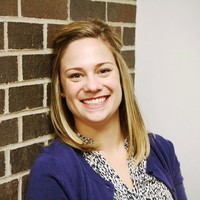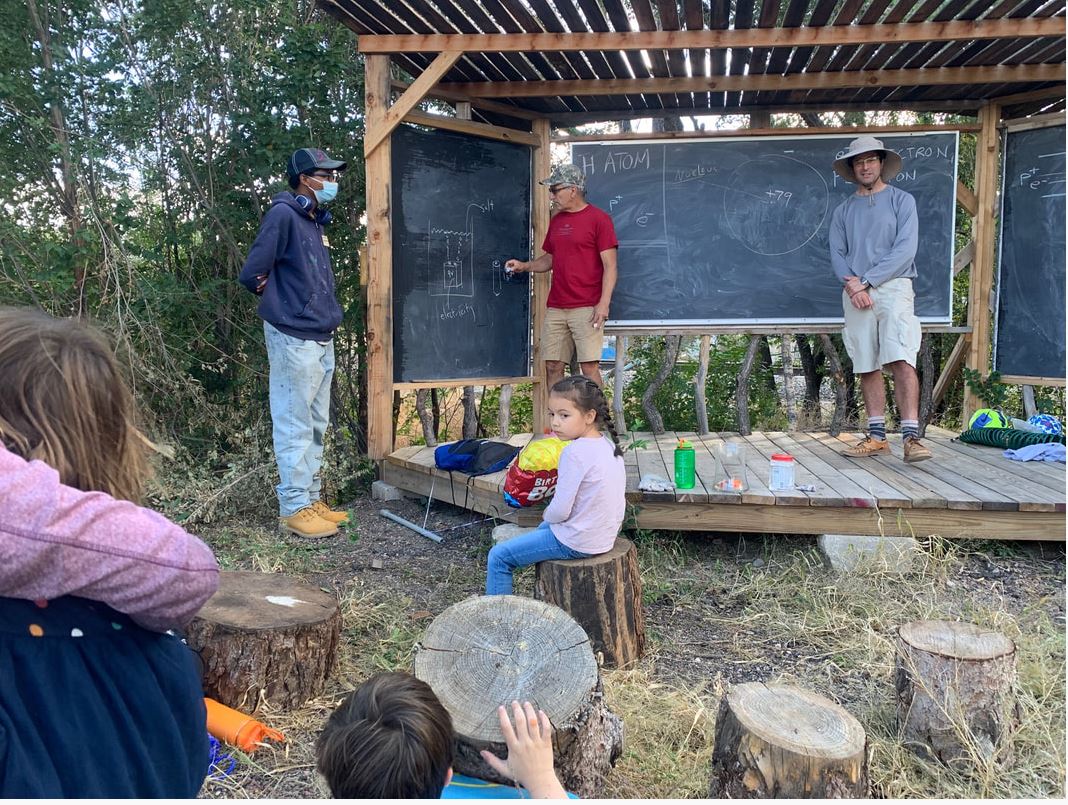
A Colorado Springs-based nonprofit has plans to open a privately operated park southeast of downtown this fall. Once it's done, Concrete Coyote Park will offer trails, demonstration gardens, and outdoor classrooms for events and environmental workshops.
Steve Wood is the executive director of Concrete Couch, the group working to reclaim the formerly blighted area. Wood said they're already hosting programs six days a week. Everything at the site is free and open to the public.
"We have a really direct chance to make a difference for folks that are from the neighborhood," he said, referencing the nearby Hillside neighborhood. "[This will be] a community park they can walk to."
A $19 million proposal to run high voltage power lines through a portion of the park could change that, though, Wood said. The transmission line would travel from the Kelker Substation on South Academy Boulevard to Martin Drake Power Plant, with a portion running through the planned site of living quarters for 24/7 security staff.
Wood said that's a big blow, considering the limited space for it to be built elsewhere.
"I think we really won't have a park if that happens," he said, referring to the absence of a caretaker's residence. "[Because of its location], you really need to have someone there every day."
He's also more concerned about the trees that would be taken down and the potential health impacts the lines bring than the aesthetics of the poles and wires.
Steve Berry, spokesman for the utility company, said easements on private properties are common when expanding transmission infrastructure in developed areas. He said the lines are a necessary part of the transition from fossil fuels following the closure of the Drake power plant in downtown Colorado Springs.
"Shutting down coal is a good thing," Berry said. "But there are trade-offs when you move toward smaller scale electric generation because you need more transmission infrastructure to bring in power."
In these situations, Berry said the agency's priority is to come to a resolution with the property owner, including compensation.
"Eminent domain is a last resort," Berry said. "It's not even in our vernacular."
Concrete Couch is negotiating with Colorado Springs Utilities regarding compensation and details. Wood said they were initially offered $69,000.
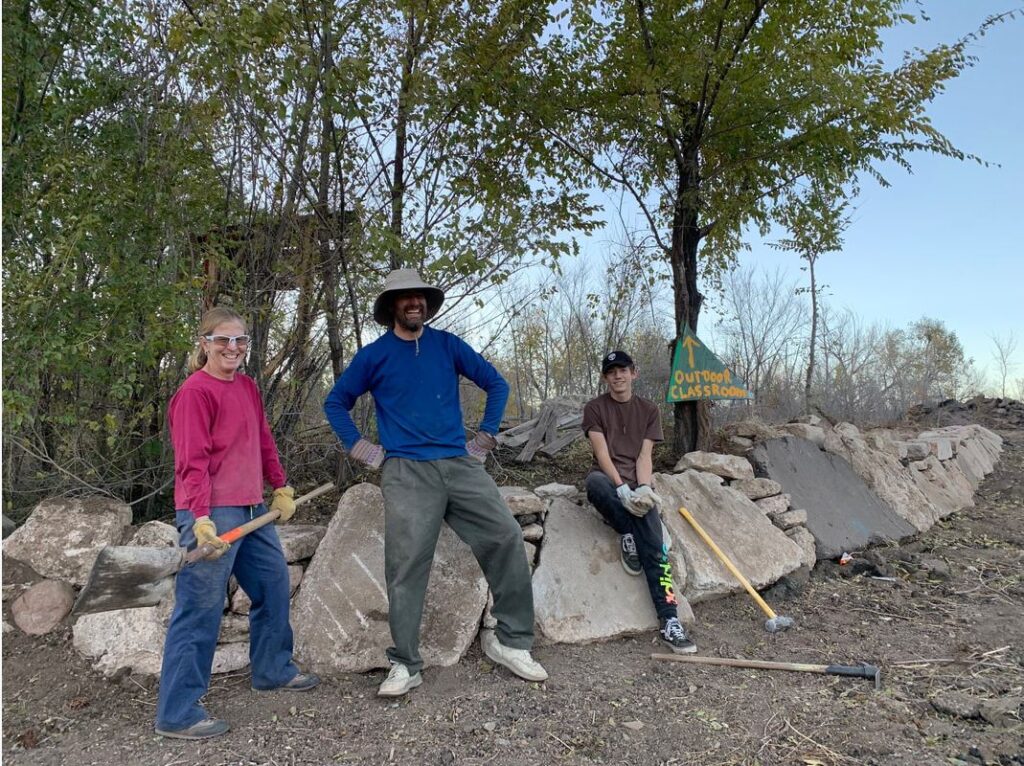
"That seems like a lot of money, but just to change our development plan and move the house closer to the train tracks and put up a sound barrier wall, most of that is gone instantly," he said.
At Wood's request, Colorado Springs Utilities paid for an independent appraisal of the park. That put the value of the property at $695,000.
Wood said that dollar amount felt more reasonable but nothing has been settled.
"If [CSU] goes for the higher offer, ideally we would have them bury the lines or do something that's appreciably safer, or pick another route," he said. "But at that point, we'd at least have money that we could invest in some other kind of creative ways to improve the property."
Colorado Springs Utilities has similar projects to expand substations and transmission lines across the city, including near the intersection of Austin Bluffs Parkway and North Union Boulevard, and in the Flying Horse neighborhood.
"[Concrete Couch] serves an important audience and we aren't discounting that in any way," Steve Barry with CSU said. "They're not being singled out. This is not related to the part of town the park is in. There are a lot of folks from all backgrounds that are seeing a short-term inconvenience as we expand substations and transmission lines."
Steve Wood with Concrete Couch said he commends the agency for trying to plan in a way that keeps rates low for citizens.
"We certainly don't want them to spend more than they need to," he said. "We just want them to take into account the value that we bring and not impinge upon that if there's some alternative route that they can use."
He's hopeful a meeting he’s having with the utility this Thursday will bring a solution.
The evolution of Concrete Coyote Park
Concrete Couch was founded in 2003 to bring people from across the city together and build community through creativity, art and programming. Its mark is visible throughout Colorado Springs with hundreds of murals and public art installations including the large pumpkin sculpture near Vermijo and Nevada Avenues downtown.
The non-profit's unique name came from the suggestion of a student.
"We had made a tile-covered concrete bench at the Manitou Skate Park," Wood explained. "And one of the kids that worked on it said, 'why not name it after our project, the Concrete Bench?'"
He said the name lends itself to a hallmark trait of the group: "a juxtaposition and bringing together of things that are really different."
Concrete Coyote Park will be the official home of Concrete Couch, once it's complete.
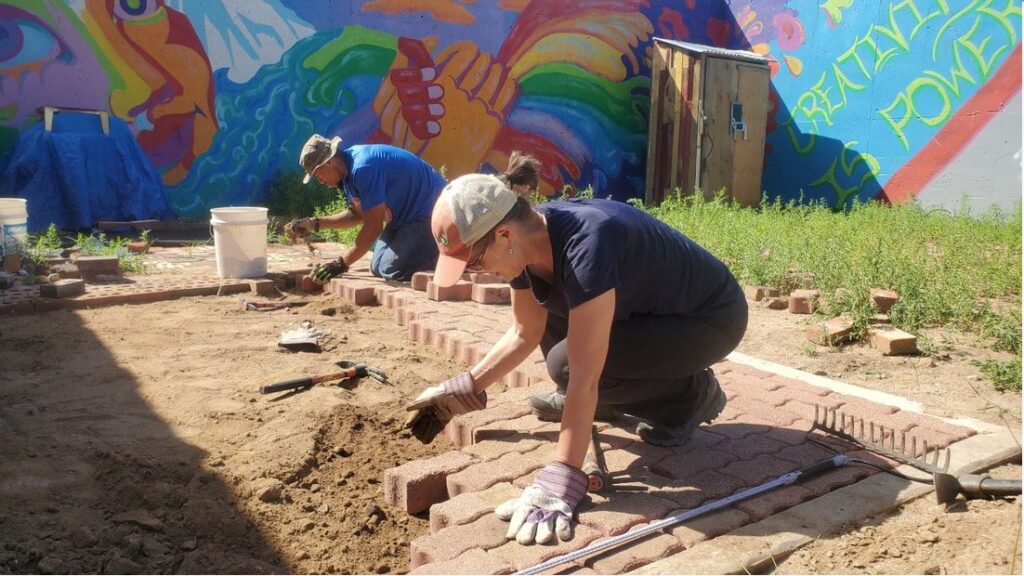
The 8-acre lot was once an unofficial dumping ground for construction companies to dispose of asphalt, concrete and trash. Now though, it boasts swings, a wooden climbing gym, handmade art, and a nine-basket disc golf course.
Concrete Couch purchased the land for more than $100,000, using grant money from the city. Wood said his organization has had a presence there for two decades.
"We had 80 community meetings before we purchased the property," Wood said. "We met with neighbors formally at Hillside Community Center and informally in many living rooms over coffee and cake and just said, 'Hey, you guys know us. What do you think we should do with this site? Should we buy it?'"
Residents told Wood they wanted a park where kids could grow and learn, and where neighbors could recreate. They wanted public restrooms and a place that felt safe and accessible.
The final product will be, as Wood explained, "a place for all to meet and make” called Concrete Coyote Community Park.
"We've hosted 1,875 free programs there," Wood said. "We're teaching skills, but we're also sharing skills. We're learning from the folks that come and we're really building the park."
Programs listed on the Concrete Couch website include a Citizen Science course focused on stream ecology, urban watersheds, and ecosystem restoration. Another option gives folks a chance to build and fix biking trails on the property. There are classes on drumming and dancing, as well as mosaic work and construction.
Wood said the fact that the park is privately owned allows for opportunities to do things differently than city-operated parks.
"From their standpoint, we assume the liability," he said. "But it also means we don't have any problem legally if someone starts to set up a tent to say, 'Hey, I'm sorry, there's no camping allowed. We'd love to have you help with programs, but you can't camp here.'"
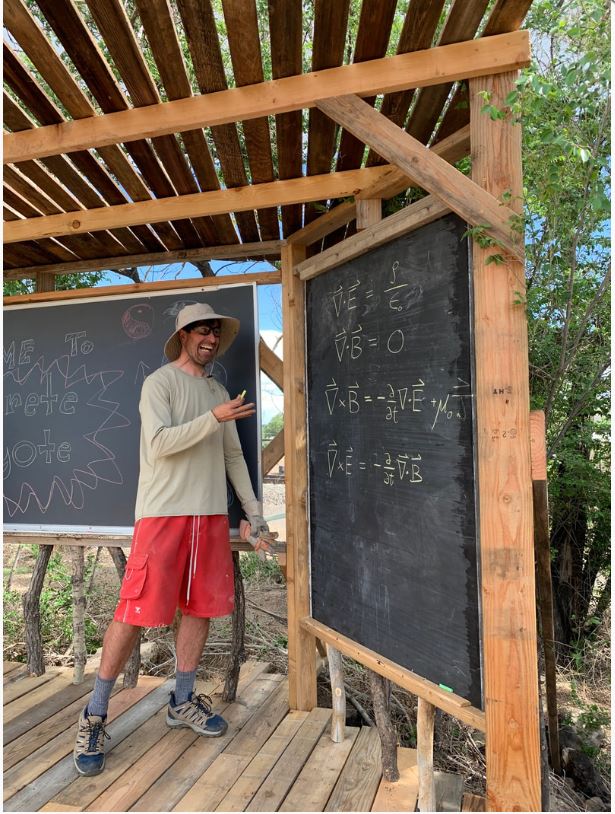
In the past, the area was used by the unhoused community. Wood said Concrete Couch plans to have someone on-site 24/7 to enforce rules, but that doesn't mean they'll be forcing people out.
"As part of our model, we want to help these folks by giving them an opportunity to be part of a community, to share resources," he said. "We have a clothes closet and a food pantry. It gives us the ability to say 'no weapons, no drug use, no smoking, but come back and spend the day with us and work on something.'"
The total budget for the park is $1.6 million, including the construction of an office, the caretaker residence, and public restrooms. That also includes the cost of insurance and an environmental assessment.
Wood said a recent Lodgers and Automobile Rental Tax (LART) grant from the city will go toward finishing signage on the trail systems and adding trash cans, among other things. The west side of the property includes a section of the Legacy Loop Trail, which is a 10-mile circuit around downtown Colorado Springs. Concrete Couch has provided an easement to the city to allow the completion of the loop.
"As a community-built project, this is kind of unique and I think a real map for folks in other communities that want to do something big like this without millions and millions of dollars behind them," Wood said.
The bottom line, Wood said, is that everyone is welcome.
